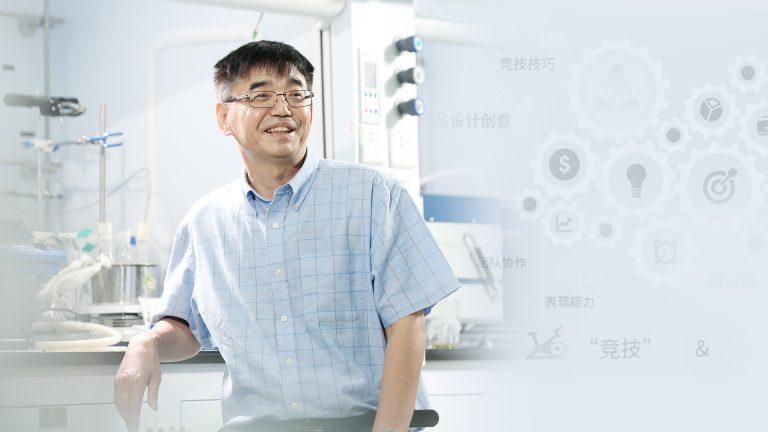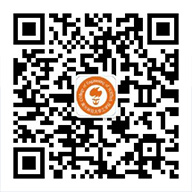Dean Xu of College of Engineering inspires others for online emerging engineering education
Apr 16, 2020
On March 30, SUSTech Chair Professor Zhenghe XU (Materials Science and Engineering), as the Fellow of the Royal Society of Canada (FRSC) and the Canadian Academy of Engineering (CAE), was invited to present a webinar to the International Federation of Engineering Education Societies (IFEES) and Global Engineering Deans Council (GEDC). It follows his earlier webinar to Canadian universities on a similar topic.
As a globally–recognized leader of engineering education and the Dean of the College of Engineering (CoE) at SUSTech, Dr. XU's webinars were presented to over 400 professors, deans of schools, students, and industry representatives, in his capacity as an executive member of the GEDC. He spoke about the importance of sharing his educational thoughts with other leaders and the development of a student-centered online learning environment.
One of the significant challenges facing the world with the outbreak of COVID-19 is how to provide high-impact education to students without face-to-face classes, while ensuring these students to fulfill their degree requirements in a timely fashion. SUSTech was a fast mover in the field of online learning during the epidemic and had the full gamut of courses online without delaying the commencement of the spring semester.
Zhenghe XU's webinar explained the experience SUSTech had had in online teaching from an educational and administrative perspective. He spoke to webinar’s participants about the different platforms used by the College’s faculty members for teaching, preparing, and delivering online lectures. Zhenghe also spoke about the student-centered approach to engaging students through the various ways of interacting with the students online to keep them involved in the class, as well as analyzing the feedback students have provided. These efforts help greatly the student centered learning in online teaching/learning environment.
Adjusting to an online-only teaching and learning paradigm is still a work in progress for SUSTech and many institutions around the world, with many challenges still to be resolved to provide the top quality education that students have come to expect. Zhenghe focused on SUSTech’s approach to online teaching. He pointed out that SUSTech made a quick decision to move to online classes and require students to remain off campus for the foreseeable future.

Using technology to provide high-impact education
The fundamental principle behind SUSTech's online education was to maintain an in-class experience for all the aspects of teaching and learning, while online. Faculty members and teachers were encouraged to adapt their teaching methodology to the online environment, whether they chose to live-stream or pre-record their lectures, most times a combination of the two.
As part of this, scholars and faculty members were given websites on the Blackboard teaching platform, empowering the educators to submit their relevant course materials. The Blackboard teaching platform is also technology-independent, allowing the faculty members and educators to find their optimal methodology for passing on their knowledge. He focused on the preparation his colleagues made for their classes.
Zhenghe spoke about the different online teaching tools that faculty members and scholars have used throughout this period. Many have opted for Tencent Meeting for their lecture delivery, as it also allows them to share their screen with the students. The US app Zoom was also popular for similar reasons for Tencent Meeting, while also allowing for the recording of the lecture for future review. Both of these were often used in conjunction with the Blackboard teaching platform. Other programs used include Rain Classroom, QQ (an instant messaging service), Sakai, Tencent classroom, and Bilibili (a youth-oriented broadcasting platform that incorporates on-screen comments).
In his assessment of Zoom, Tencent Meeting, and Rain Classroom, Zhenghe highlighted the importance of recording the lessons for students so they can be subtitled for review in the future. He noted that each of the three platforms provides its pros and cons, so scholars had to think carefully about the platform they use before they determine their approach to online education. Teaching experimental skills was an additional challenge for engineering schools around the world. Zhenghe recommended the adoption of video demonstrations, simulations, and virtual laboratories to overcome these adversities.
As part of his broader commentary on online teaching, Zhenghe highlighted the importance of high-quality and consistent communication with the students through the Blackboard platform so that students get used to checking the platform for all relevant information. He also spoke about the importance of engaging with the students during these smaller group sessions. Some of the methods he spoke about included student voting, rapid Q&A assignments, group assessments, and calling on students. The opportunity to flip the classroom is also an option available to scholars.
Online student-centered education provides more opportunities to adjust
A critical part of SUSTech’s approach to its student-centered education is the creation of an educational feedback loop. Students complete assignments evaluated by the faculty and scholars, while students provide feedback about course content and their educators.
By implementing the educational feedback loop both online and offline, educators can understand student activity throughout the programs and adjust their methodologies to suit their students. The most significant change is that the feedback is taking place faster in an online environment, resulting in more accessible adaptations.
Zhenghe pointed out that both online teaching and face-to-face classes provide different challenges and benefits for education systems, and noted that there is no perfect system. One thing he pointed out is that many students were eager to return to campus – the desire for human connection is fundamental, and students are not immune to it.
In his summary, Zhenghe reminded participants of the importance of having multiple back-up plans and being able to prepare for different situations. Some students may not have internet access at home, so that needs to be considered.
There are also considerably more distractions available to students in their family home, so keeping students engaged is vital. He noted that some of his colleagues had seen social media footage of people conducting meetings with their pets – something that Zhenghe did not rule out.
Zhenghe reminded webinar attendees that they need to be ready to transition not only for offline to online but back again in the future. They should pay attention to student learning outcomes, satisfaction, and engagement. Educators need to get timely and accurate information about their online teaching performance, so systems need to be created for that if they do not already exist.
Feedback
His webinar was exceptionally well-received, with many participants praising his presentation. Dean of Studies Professor Rainer Fink at the Department of Chemistry at FAU Erlangen-Nurnberg requested more information, as he was working with his colleagues to develop plans to teach online over summer.
IFEES Secretary-General Hans Jurgen Hoyer (Resident Scholar in Global Engineering at George Mason University) thanked Zhenghe for his webinar. He said that there was now considerable demand among the Latin American community for his presentation to be translated into Spanish.
Tips for online teaching
l Maintain communication with your students through a single platform, so they know where to find all the relevant information.
l Engage with the students. The only thing that has changed is the platform, so adjust to a different method of engagement.
l Be prepared, and have multiple back-up plans in case something fails.
Latest News
Related News












